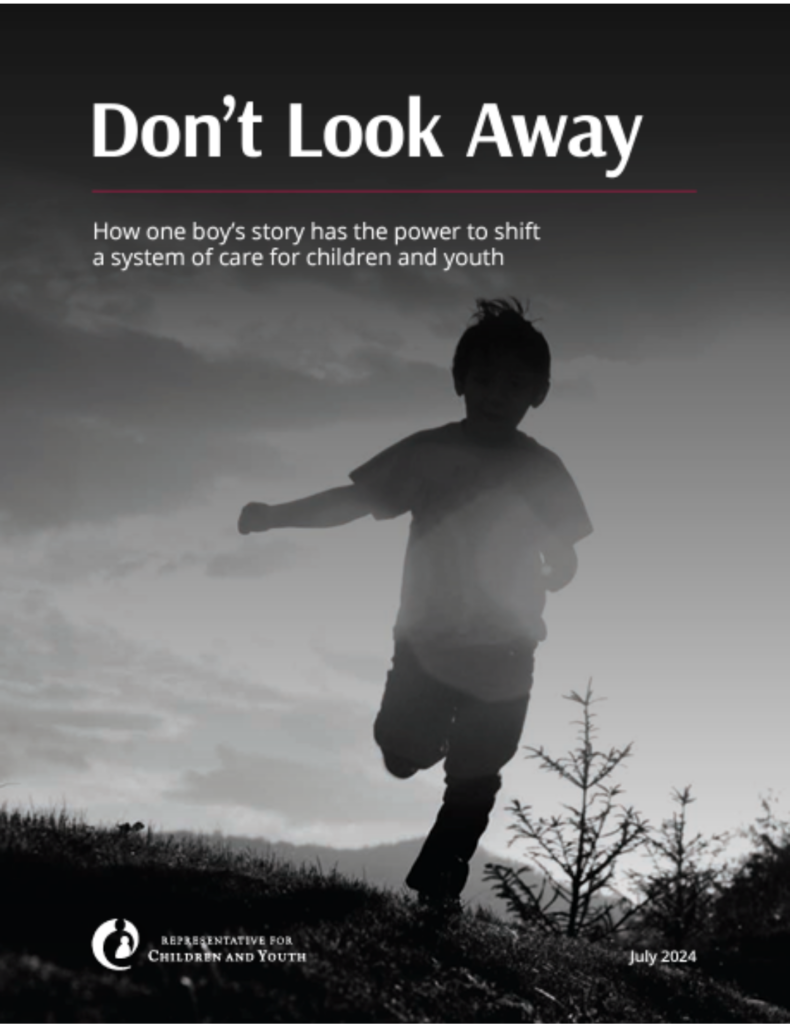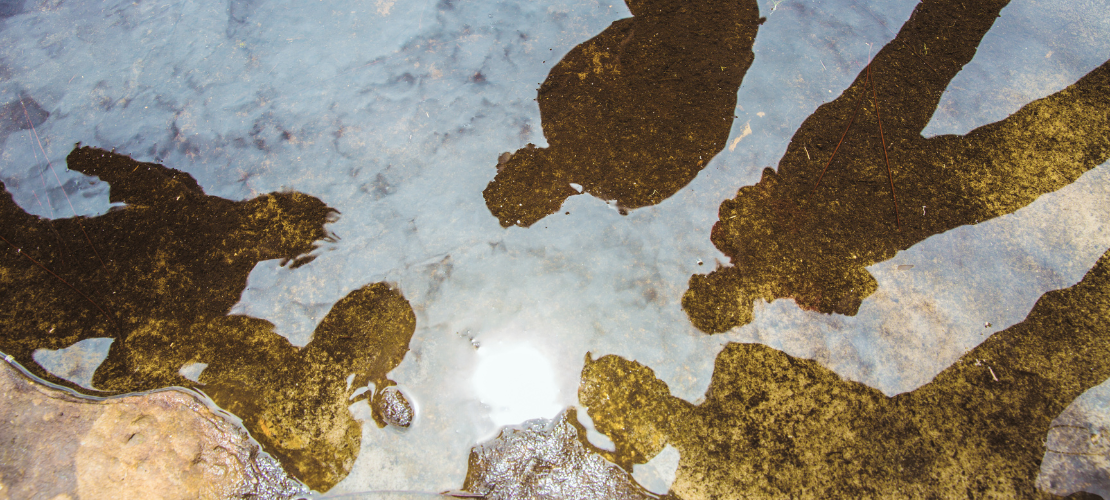By: Dakota Anderberg & Sophie Carriere
On July 5, 2024, rays of sunshine were beaming down on the earth as faculty, staff, students, and community members gathered in the xʷc̓ic̓əsəm Garden at the UBC Farm (pronounced “Hw ‘ts i ‘ts u sum-”, traditional xʷməθkʷəy̓əm Musqueam name for the Indigenous Health Research and Education Garden, meaning “The place where we grow”) for an Indigenous Data Sovereignty Symposium.
The following is a reflection from Dakota Anderberg and Sophie Carriere, Human Early Learning Partnership staff members that were in attendance on the day.
A Grounded Opening
xʷc̓ic̓əsəm is located in a quiet, treed area between Marine Drive and the UBC Farm’s main entrance, and is home to over 50 medicinal plants native to British Columbia and other regions. It’s summer now, and the garden thrives in the heat of the day. Traditional plants and medicines flower and fruit, and workers collect what they need to make tea for the guests. South-East of the garden, a Sacred Fire is already burning. Dr. Eduardo Jovel and Alannah Young, event organizers and long-time caretakers of xʷc̓ic̓əsəm, are seated around the fire, joined by speakers Dr. Kimberly Huyser and Dr. Johanna Sam. Dr. Huyser is an Associate Professor of Sociology at the University of British Columbia (UBC) and an enrolled member of the Navajo Nation. Dr. Sam is an Assistant Professor in the Faculty of Education at UBC and a citizen of the Tŝilhqot’in Nation.
The morning began around the Sacred Fire with an opening from Musqueam Elder Thelma Stogan and Dr. Eduardo Jovel. Four sacred medicines had been prepared and all participants were invited to make offerings to the fire if they wished. Once the day’s intentions were set and all members were grounded, everyone was ready to dive into the conversation that was about to take place.

A Continued Conversation
This is not the first Indigenous Data Sovereignty Symposium at xʷc̓ic̓əsəm. The Indigenous Land-Based Health, Wellness, and Education Research Cluster hosted a conversation on Indigenous data sovereignty around the Sacred Fire towards the end of April. At the time, we were well into spring and the garden was beginning to bloom. The conversation was a casual discussion of experiences with community-based research, and the ways in which we define and protect Indigenous data. July’s symposium continued the conversation, inviting experienced Indigenous researchers to discuss their work more in-depth. Kimberly and Johanna’s reflections on their research and on the all-important topic of Indigenous data sovereignty were detailed and gripping. Both used storytelling to share their learnings, speaking of their experiences in areas such as access to Indigenous data collected and stored negligently by government or other authorities, the Memorandum of Understanding and Indigenous Knowledge Protocol Agreement signed by UBC and the Tŝilhqot’in Nation, and using Indigenous data as a key piece in the fight for written title.
Key Reflections and Lasting Questions
Though the stories told by Kimberly and Johanna are not ours to share, their thoughtful questions and reflections remind us of a forward push within our settler academic institution to prioritize Indigenous data sovereignty.
Over the course of the day, there were various themes, lightbulb moments, and questions that came to mind. The conversation reminded us that the disparities, inequalities, and outcomes that occur are not due to singular entities or individuals, rather they arise due to a network of systemic failures. Multiple processes, procedures, and system discrepancies have generated the imbalances that are currently prevalent; these are the “leaky spots in the pipe,” as Dr. Huyser has identified them. Data that has been collected about Indigenous peoples has been historically spotty as many numbers have been unreported and undercounted. So, what does data sovereignty entail? What does data reclamation involve? How do we change the nature and process of data collection in the context of the broader world?
There isn’t any one answer to these questions. As for one example, reclamation requires bringing ancestors home. It can also include creating legal definitions and procedures from the community itself. Furthermore, this conversation and the idea of self-governed definitions and procedures highlights the need to develop policies in Indigenous languages first and then translate them into English if necessary; starting in the Indigenous languages carries succinct meanings and ways of being that are not conveyed in other languages. In this sense, we are reminded to return to the original teachings, stories, and ways of being from unique nations and communities. These stories hold law, legal understandings, and lessons within them that can guide the future.
We continue to think of new questions as we reflect on what we learned: What is our role as researchers? What does the relationship between Indigenous communities and academic institutions look like in the future? How can we hold our institution and ourselves accountable to the needs and wants of the communities we work with? In asking these questions, we are reminded of the importance of continuing the conversation, and finding space to come together to imagine a new future.
The symposium ended as it began: gathered around the Sacred Fire. From morning to afternoon until closing, the day was grounded in cultural safety. It became clear that these types of conversations, those that ponder the future of Indigenous peoples such as data sovereignty, can take place in safe spaces within our institution. Our thoughts, ideas, and selves can all be held and nurtured with care. This event truly echoed back to the name of xʷc̓ic̓əsəm: “The place where we grow.”

Connections to Don’t Look Away
Through all of our learnings over many conversations, one thing is clear: data about Indigenous communities is owned by each respective Indigenous community. Data sovereignty means information, belonging to, about, or collected in a nation, is governed in ways consistent with the laws, practices, and customs of that nation (definition from the First Nations Principles of OCAP®). Data sovereignty is incredibly vast, and includes various aspects of all life; this can cover data that is about or takes place on land, data about language, or health and population, to name a handful. When considering the history of how data about Indigenous people has been collected, self-determination and data sovereignty have historically been infringed upon, neglected, or disregarded entirely. As stated above, current processes and procedures can and have been reformed and new frameworks can be envisioned and dreamed up.
With the National Day for Truth and Reconciliation approaching on September 30, it is important to draw attention to The Office of the Representative for Children and Youth (RCY) newly released report Don’t Look Away – How one boy’s story has the power to shift a system of care for children and youth from July 16, 2024. This report explores the systemic issues that have impacted children while providing recommendations for entities such as the Government of British Columbia and Ministries. In this report, one can see the direct connections to Indigenous Data Sovereignty and the importance of its actualization and implementation.
As Dr. Huyser discussed in the xʷc̓ic̓əsəm Garden, systemic failures have been the root of sundry inequalities and problematic outcomes. The RCY highlights that it can be easy to blame one individual, organization, or entity for a negative result; however, it is the repercussion of a larger pattern of systemic issues and failures.

Returning to Original Teachings and Ways of Being
At the symposium, Dr. Sam brought attention to the fact that there are different levels and hierarchies of data. Dr. Sam stated that she conceptualizes that data starts from the family level, moves to the band or nation level, and then moves to an international level. Since data starts at the family level, healing starts from family level. The RCY echoes this ideology as they recommend that there should be resources available for community-based healing. To the government of BC directly, they recommend that there should be a “supported transition to greater self-determination and jurisdiction over child welfare, to the extent that the Nations desire.” This reflects families’ and nations’ inherent rights to self-determination and self-governance, including the care of their children. Reclamation is bringing ancestors home, and includes bringing our children home – even if that means just knowing where they are and knowing the real numbers corresponding to children in care. This is especially important given data collected by government and other authorities about Indigenous people has historically been underreported and undercounted. More accurate data, combined with data sovereignty, allows nations to make more informed decisions for their individual needs. Moving forward, the RCY includes recommendations in line with this principle in their report for Ministries and public bodies working with and for children, youth, and families:
“Ensure that there is a shared baseline of ‘current state’ data and information about how children and youth are faring across the domains of social-emotional well-being, health, education, inclusion and belonging (at minimum). These data and information can be compared over time to identify trends and changes.” (Don’t Look Away Summary Report, 2024, p.25)
While challenges in data sovereignty and access to accurate data continue to persist amongst Indigenous peoples, the dream of a system of care rooted in Indigenous knowledge and protocol is becoming clearer. As we continue to think of systemic changes happening now and in the future, Don’t Look Away reminds us that “a system built on care and love and respect is one that can raise children.” (Don’t Look Away, 2024, p.166)
Additional Resources
- Disaggregated demographic data collection in British Columbia: the grandmother perspective from British Columbia’s Office of the Human Rights Commissioner
- The First Nations Principles of OCAP® from the First Nations Information Governance Centre
- Framework for Research Engagement with First Nation, Metis, and Inuit Peoples from the University of Manitoba
- Using OCAP and IQ as frameworks to address a history of trauma in Indigenous health research from the AMA Journal of Ethics
Written by Dakota Anderberg & Sophie Carriere
Dakota Anderberg is the Indigenous Community Engagement Coordinator at HELP. She works with the Senior Manager of Indigenous Initiatives to develop, build, and maintain meaningful relationships with Indigenous communities and organizations.
Sophie Carriere is the research coordinator for a partnered project between HELP and the Centre for Excellence in Indigenous Health (CEIH). The project, entitled Creating Structures for Meaningful Indigenous Community & UBC Health Partnerships aims to explore and create structures that will support relational, reciprocal, and meaningful partnerships between Indigenous communities and UBC.
*Out of respect for xʷc̓ic̓əsəm Garden’s restrictions on photography, the included nature images depict what you might see locally, but were not captured at xʷc̓ic̓əsəm.
**This article is our personal reflection, and may not be representative of xʷc̓ic̓əsəm Garden’s own interpretation of the event.
